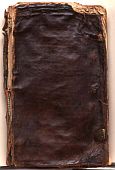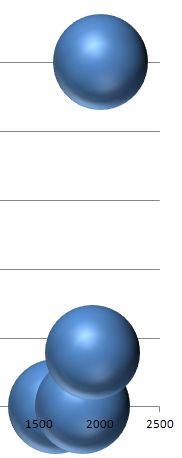The first Christian book printed in English in North America was also the first book printed in North America. The Bay Psalm Book was first printed in 1640 in Cambridge, Massachusetts by Stephen Daye, a locksmith whose name does not appear on the title page but who is nevertheless credited as the first printer of the first book printed in the English colonies of America.
The Bay Psalm Book demonstrated that so long as there is capacity for poetry in the human soul, the culture of the era will prevail over any limitation brought forward by the means or lack of it. It is no big surprise that the first printing of the first book in America was pretty primitive. A plain calf, undecorated binding, and a layout that had no spacing between the Psalms with uneven presswork that sometimes had titles appear at the bottom of the page was what modestly constituted The Bay Psalm Book. Further, it was lacking proper punctuation and spelling in a loose translation of the original Hebrew into English metre. Despite lacking musical notation, however, it was used by the Puritans to sing in worship the faithful hymns of God’s Word:
of Zion: the establish-ed
counsel declare I will.
God spake to me, thou art my Son:
this day I thee begot.
Psalm 2:7 – Unedited text as it appears in the Bay Psalm Book – Jesus Christ is the Son of God
The importance of this first book printed in British North America is colossal. Today a mere total of 11 copies are accounted for establishing its absolute rarity and scarcity in the marketplace. The first recorded transaction in the book trade for this book took place in 1864 when collector George Brinley bought the book from the dealer Henry Stevens for one thousand US dollars. This copy of the book is now owned by the Beinecke Library at Yale, purchased at auction in 1947 for $151,000. It was then the highest price ever paid for a printed book. This was the last public trade of a copy of the Bay Psalm Book. Another copy owned by a private collector was donated to the Library of Congress in 1955, and yet another is safely stored inside a box at the John Carter Brown Library at Brown University. Two other copies are owned by the Old South Church in Copley, Boston, one of which will soon go on sale at an auction that is expected to fetch, thanks to Sotheby’s appraisers, an amount between 10-20 million USD. Achieving such a low estimate relative to the historic actual sales, will seem to have indications of the “bubble effect” exhibited here graphically through inflation adjusted figures. Luckily for rare book collectors, the term remains far from reality in the world of rare books.
The work which is believed to have been the combined effort of thirty colonial ministers, who desired a metrical translation of the Psalms, is indeed quite scarce. Despite the dozens of different renderings of the Psalms in different English versions, the majority of which contain the entire contents, the Bay Psalm Book is very scarce in all publications and printings. Besides the eleven original edition copies, a small reprint issued in 1862 has nearly disappeared from the marketplace and the facsimile edition of 1903 has also become very rare.
At this time when Christian churches around the world will soon be observing the 2012th year since Jesus’ birth with psalms of joy and liturgical texts in various languages, it is hard to imagine a time when ministers struggled to produce a book to express precisely the meaning of the original Hebrew text. They were, after all, the inspired settlers that crossed the ocean from England to the New World. Nevertheless, it is an appropriate time for the bibliophile of religious books to not only reflect on the origins of rare, congregational books in Christian worship, but to also witness the value appreciation of the rarity in the antiquarian book market as a whole.



{ 0 comments… add one now }
{ 2 trackbacks }